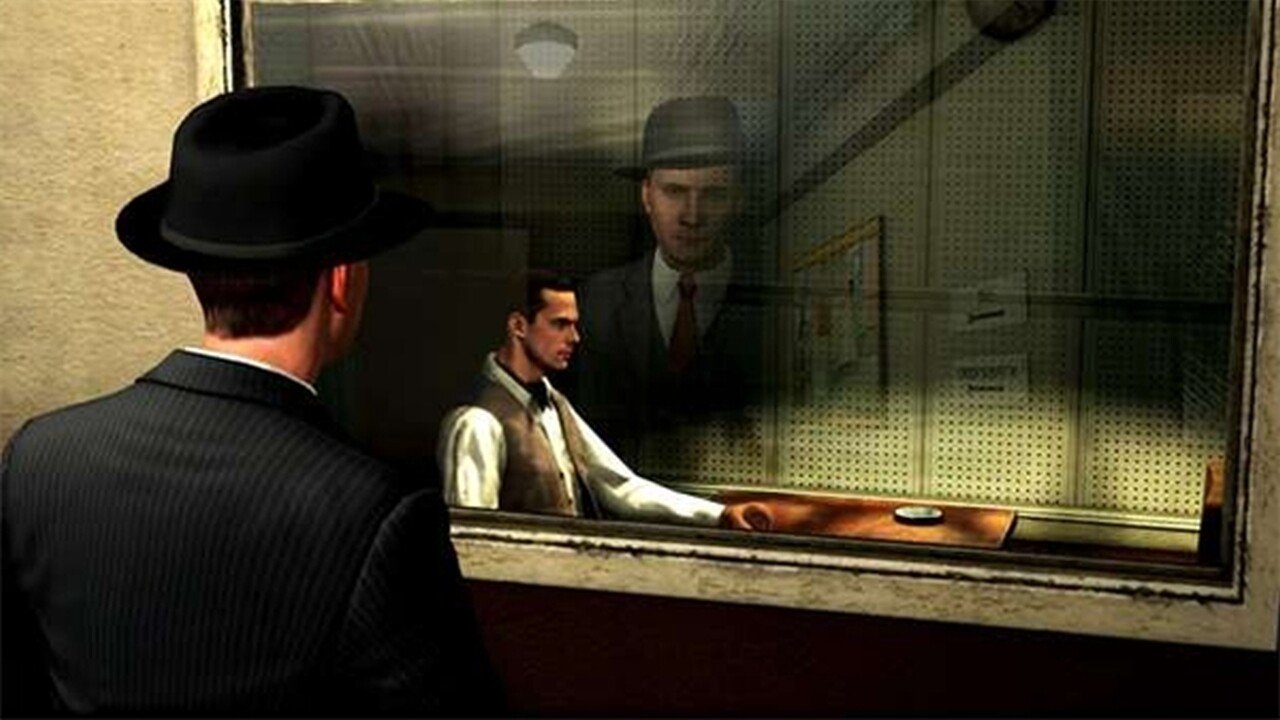It seems like everyone wants to create an epic. Recent films make up some of the worst offenders, with many comedies now bursting through the 120 minute mark (hi, Judd Apatow). The same can be said for videogames, which are just as guilty of unnecessarily overextending themselves — even when adding length is detrimental to the experience.
I finally played L.A. Noire and, while still an excellent game, it suffers from the kind of bloating that pops up all too often in games. While I don’t want to tread too far into spoiler territory (Noire’s narrative is its strongest point) I’d recommend those who haven’t yet played it turn back here.
All right? Okay.
Cole Phelps, the game’s protagonist, begins to make a name for himself in the Los Angeles police force while working the Homicide Desk (the second of the title’s four assignments) and attempts to unravel a string of gruesome murders indicating that, just maybe, a serial killer is on the loose.
The first two or three of these cases accomplish the narrative and gameplay experience that the Homicide portion of Noire is going for. The repetition involved in six total cases of this type, though, is complete overkill. Each follows the same pattern: Cole and Rusty, his current partner, are assigned a murder, they examine the crime scene, follow their leads and charge a suspect while suspecting that he may not actually be guilty.
This is compelling stuff! Forcing the audience to “solve” a case then repeatedly tugging the rug out from under them by making them incarcerate an innocent citizen is as agonizing for us as it is for Cole. Both player and player character know that they’re not getting to the bottom of the killings, and each new case — another entry into the series of patterned murders — shows just how ineffective our/the LAPD’s actions are.
But by the time Cole is chasing the actual killer across the city in the final Homicide case, many players will be torn between their desire to reach the plot thread’s pay-off and a boredom inspired by having just completed a tedious number of overly similar cases leading up to that point. L.A. Noire does so well in combining story and play, but undermines all of this hard work by simply stretching out one section for far too long.
It doesn’t have to be this way. If the Homicide Desk section was shorter, I’d be pretty ready to declare it one of the most successful moments in videogames to date, but, whether Team Bondi (Noire’s developer) was attempting to give players a more robust experience or simply failed to edit down their work during preliminary design, it falls very short of what it could have been.
L.A. Noire’s pacing problems resemble another fairly recent Rockstar published title, Red Dead Redemption. Red Dead is one of my favourite games of this console generation but, just like the similarly great Noire, re-playing it anytime this decade fills me with a sense of dread. It also accomplished a nearly-perfect blending of story and play in its final act (attempting to heal a broken family on the Marston Ranch) but takes so long to get there — and to wrap up this portion of the game — that the effect is greatly lessened.
Brevity is valued in every medium, and videogames shouldn’t be any different. Unless a piece of entertainment truly needs to be lengthy to accomplish its goals (like an enormous RPG or, say, a sprawling film drama) it’s almost always better to trim the fat and offer audiences a leaner, less repetitive experience.
The modern videogame industry seems to be experiencing a dilemma very similar to the Victorian literary one. When audiences expect a lot of bang for their entertainment buck, creators make longer and longer products. Sure, we’re probably enjoying titles that could be the games equivalent of classic Dickens work right now, but will future players look back on them and wonder why nearly all of them had to be so bloody long?
***
Reid McCarter is a writer, editor and musician living and working in Toronto. He has written for sites and magazines including Kill Screen, The Escapist and C&G Magazine and occasionally updates literature and music blog, sasquatchradio.com.




